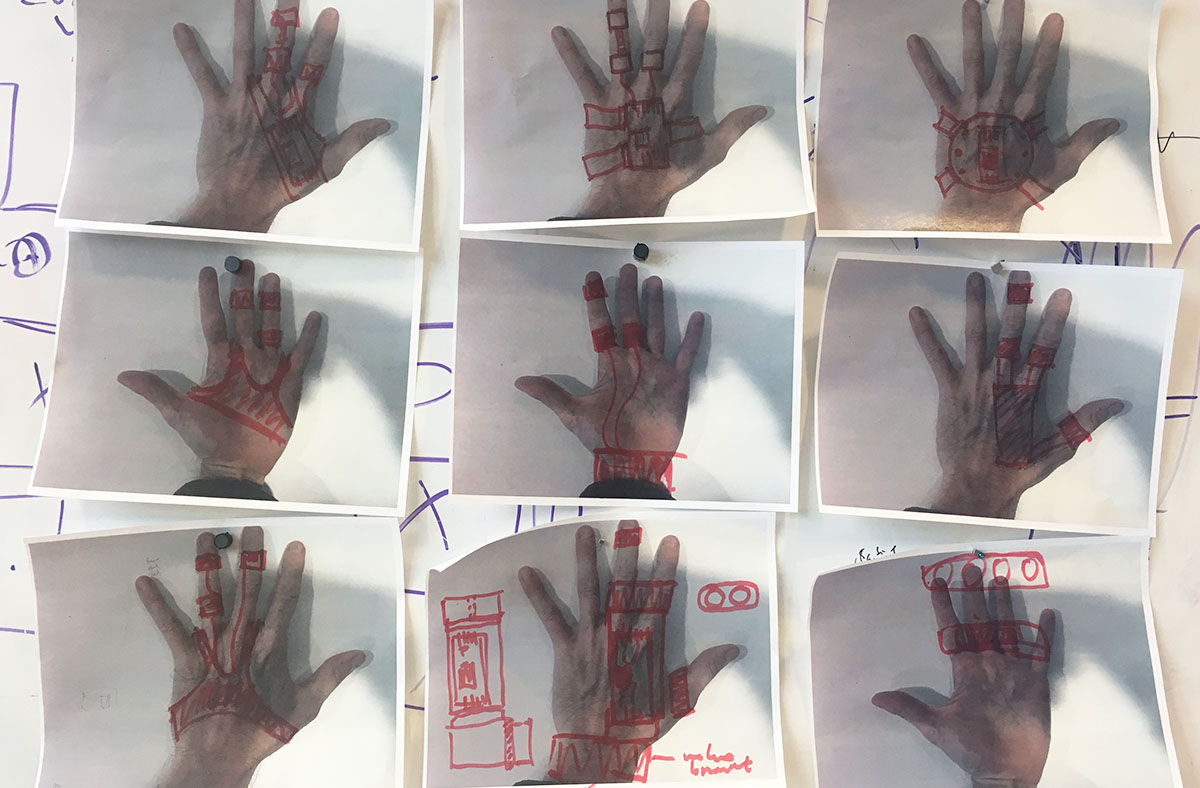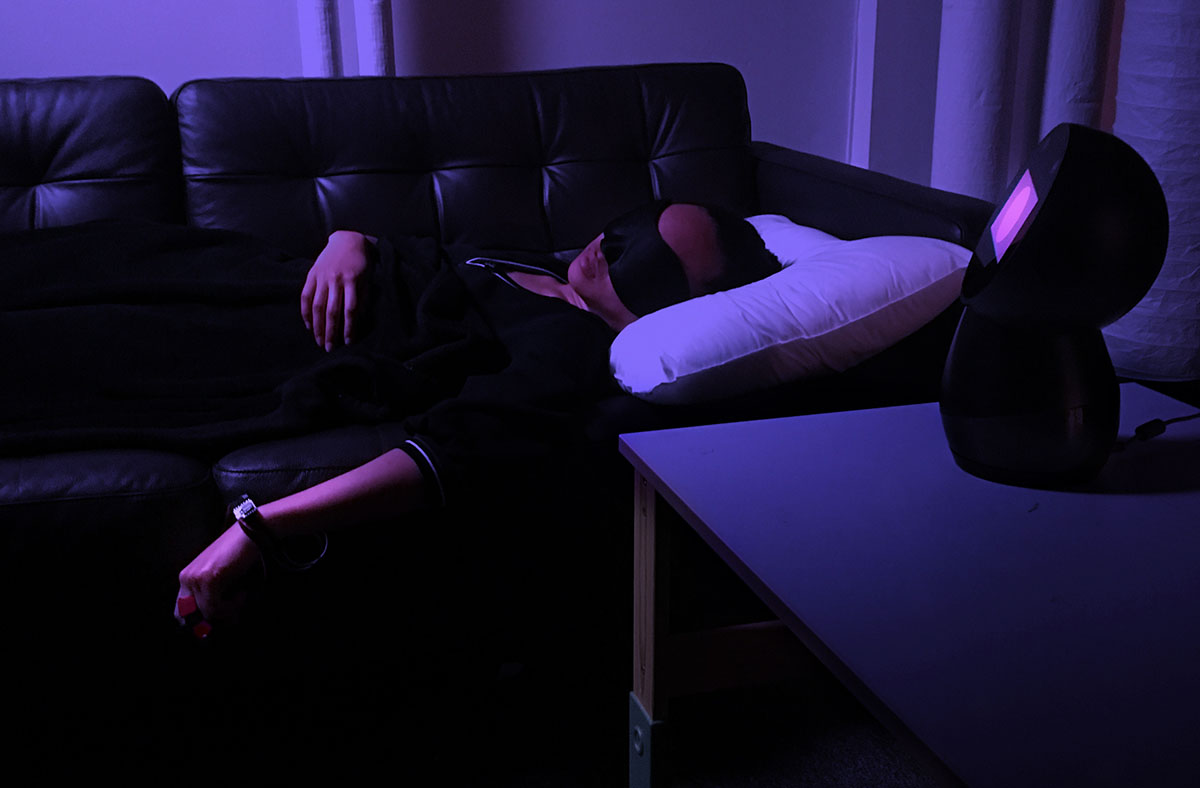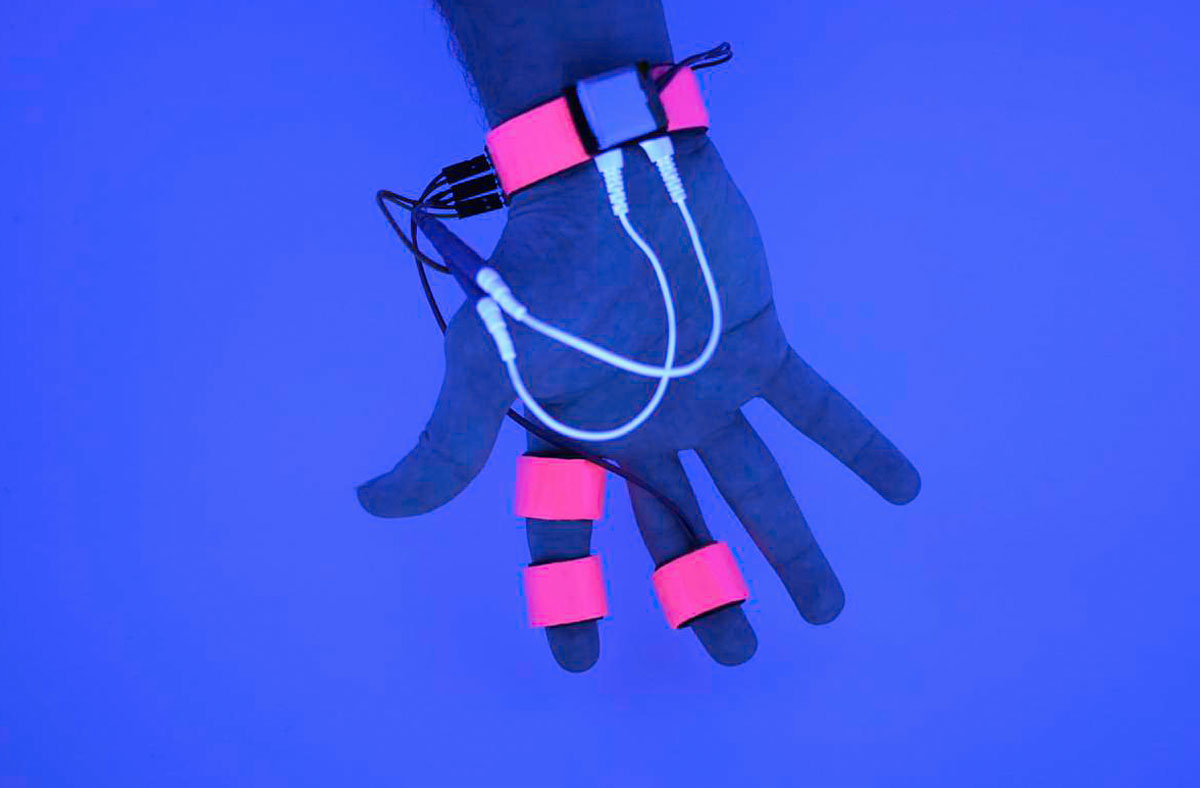Dormio



Dormio is a platform to interface with your dreams. The Dormio system allows for access to semi-lucid sleep states that can successfully influence, extract information from, and leverage cognition happening during early stages of sleep in order to augment creativity. This platform will allow access and active usage of an otherwise neglected cognitive state vital for memory, learning and creativity, unlocking new paths for human creativity and enabling future research into sleep.
Adam is a Master's student in the Fluid Interfaces group. His work aims to augment human awareness, translating advances in neuroscience into design of interventions and experiences. He believes technology can show us parts of ourselves that remain otherwise invisible, opening doors to introspection, wellness, and wonder. Adam has a background as a neuroscience researcher at MIT's McGovern Institute studying mindfulness meditation and mind-wandering, and as an artist-scientist at the Marina Abramovic Institute. His work has been shown at Cannes Film Festival, SXSW, VR Sci Fest, SESC Pompeia, Red Bull Station, and the Boston Museum of Fine Arts. Adam helps lead two communities here in Boston: MIT Hacking Arts and Consciousness Hacking. Current projects include haptic wearables for attenuating auditory hallucinations in schizophrenia, microscopic Virtual Reality adventures inside the human body, and dream control and capture in the liminal space between wakefulness and sleep. He is an alumni of MIT's Gabrieli Lab and an affiliate at Harvard metaLAB.
Pedro is a Research Assistant at the Personal Robots Group. He received his Bachelor’s of Sciences in Linguistics and Language Philosophy from the National University of Colombia. His research focuses on exploring ways in which robots can engage humans in self-reflective and prosocial activities with a particular focus on empathy. His approach draws from principles of Cultural Evolution, Cognitive Sciences, Linguistics, Behavioral Psychology, and Philosophy. He also contributes to the group on projects related to human-robot storytelling interactions and self-driven learning in the context of literacy. Prior to Personal Robots, he worked as part of the Learning Team at One Laptop per Child. He led numerous deployments in Colombia and Argentina and was the Head of Learning and Country Manager for OLPC Rwanda. He worked for several years at the MIT D-Lab as an Instructor and Researcher in the areas of intersection between low-cost technology, education, and waste management.
Ishaan is a master's student at the MIT Media Lab in the Personal Robots group. He graduated from Georgia Tech with a bachelor's degree in Computer Science specializing in artificial intelligence and networking. He enjoys playing with data and developing technologies that leverage data. His current research at MIT focuses on building a cognitive architecture for robots like TEGA, incorporating inputs from speech and vision. Prior to this, he worked on wearable computing and algorithms to help artificially intelligent agents learn from human feedback. Last summer, he interned on the philanthropy team at Palantir, developing technologies to help farmers in the Philippines and Colombia. Before that, he interned at Microsoft on the Identity Driven Machine Learning team, building models to detect suspicious login activities.














































